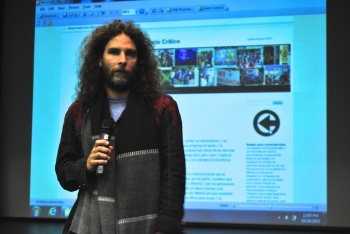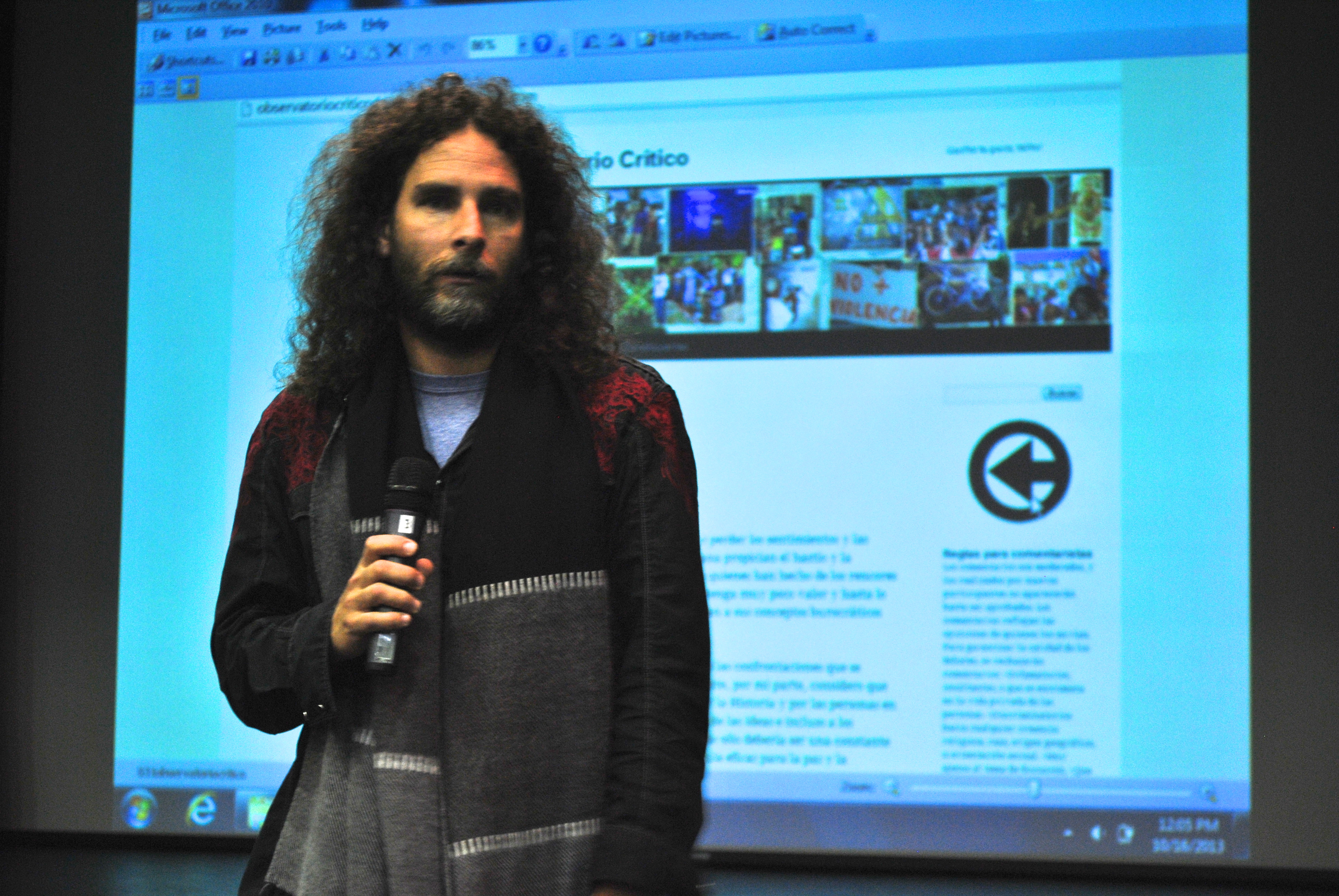
Photo Credit: Christine Moukazis
By Christine Moukazis
Dissident Orlando Luis Pardo Lazo gave a lecture at Kean University on Wednesday, Oct. 16, discussing social activism and emerging civic society under the digital censorship that exists in present-day Cuba.
Lazo, a Cuban author, blogger, photographer, journalist and social activist, was invited to speak at the university by its College of Humanities and Social Sciences.
Until January 2013, Cuban citizens were not authorized to travel outside of their country unless it was government-approved. More often than not, travel requests were denied. For the first time, Cuban dissidents — people who actively challenge official policy — are allowed to leave the country and are able to express themselves candidly while traveling.
“All of a sudden, the newspapers and the television were broadcasting the faces of these young dissidents that were telling the world what goes on in Cuba and it felt as if the iron curtain had a little hole,” said Maria Ingelmo, program assistant for the Dean of Humanities and Social Sciences. Ingelmo is also of Cuban descent.
In speaking at Kean, Lazo wanted to debunk current myths about Cuba, which he feels the U.S. press has paradoxically created. He sought to offer an account of Cuba as a person from the inside and not an academic.
Lazo depicted Cuba as a country where most fundamental rights are considered state politics, meaning a citizen is not responsible for him- or herself. If you are a regular citizen, you are not allowed to be a critical citizen. He describes Cuba as having a “belligerent, old-fashioned, Cold War-style logic.”
“I never pretend to be objective,” Lazo said. “It’s not fair for Cuba to be distorted by my subjectivity.”
Until 2008, Cuban citizens were not allowed to possess mobile phones; they were considered forbidden objects. Now, dissidents use their mobile devices to send out Short Messaging Service texts, otherwise known as SMS texts, as a means to posting tweets on Twitter.
In Cuba, telephone companies are state-run. You cannot purchase a private Internet account for your home. Internet users can access the Internet at any of the 100 cybercafés available, but for a paid fee.
Citizens do not have access to .COM domains. They are only permitted to surf the web inside of a controlled sphere, referred to as the “Intranet,” where only .CU domains are permissible.
Lazo discloses that the government has created a lot of pages that, in his opinion, “try to clone the free logic of the Internet.”
For example, www.ecured.cu is a complete domain created to reproduce the entries of Wikipedia, but in a controlled manner.
Vice President of Cuba Miguel Diaz-Canel has said that the press, including the digital emerging press in Cuba, should be faithful to the revolution of Fidel and Raul Castro.
However, virtual citizens of the emerging civic society in the alternative blogosphere, like Lazo, are trying to dynamite that logic by counteracting it.
“Home space is the nest for dynamites in Cuban society,” Lazo said.
In Cuba, Lazo cannot print nor sell issues of his e-zine, Voces, which he jokingly calls an “axis of evil.” These crimes would be punishable by imprisonment. Therefore, after the completion of a new edition, he hosts an “underground” event in a private home and secretly presents his magazine to other dissidents.
“Writing is so important to him that he risks jail to have his words read and voice heard,” said Brianne Mintz, a senior English major at Kean. “It’s amazing. I think he’s an amazing man who’s really brave and strong for still writing, even though he faces censorship daily.”
